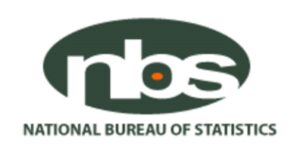
Nigeria’s unemployment rate has dropped significantly to 4.1% in the first quarter of 2023, from 5.3% in the previous quarter, according to the latest report by the National Bureau of Statistics (NBS). The report, which was released on August 24, 2023, shows that the number of unemployed persons decreased from 23.19 million in Q4 2022 to 9.68 million in Q1 2023, while the number of employed persons increased from 46.49 million to 56.12 million.
The NBS attributed the remarkable improvement in the labor market to the recovery of the Nigerian economy from the recession caused by the COVID-19 pandemic and the slump in oil prices in 2020. The report also noted that the government’s stimulus packages and interventions in various sectors, such as agriculture, manufacturing, and services, have boosted job creation and income generation for millions of Nigerians.
The report also revealed that the NBS has changed its methodology for calculating the unemployment rate, following the international standards adopted by the International Labour Organization (ILO). The new methodology includes helping household members as a form of employment, as well as adjusting the age range for defining the labor force from 15-64 years to 15 years and above. The NBS explained that these changes reflect the realities of the Nigerian labor market and ensure comparability with other countries.
Using the new methodology, Nigeria’s unemployment rate stood at 4.1% in Q1 2023, while using the old methodology, it stood at 56.1%. The NBS also provided a comparison of the unemployment rates using both methodologies for previous quarters, showing a consistent downward trend since Q4 2020.
The NBS report has been welcomed by many analysts and stakeholders as a sign of economic recovery and resilience. However, some have also cautioned that the new methodology may mask some of the challenges and gaps in the labor market, such as underemployment, informality, low productivity, and skills mismatch. They have urged the government to sustain and scale up its efforts to address these issues and ensure inclusive and sustainable growth for all Nigerians


